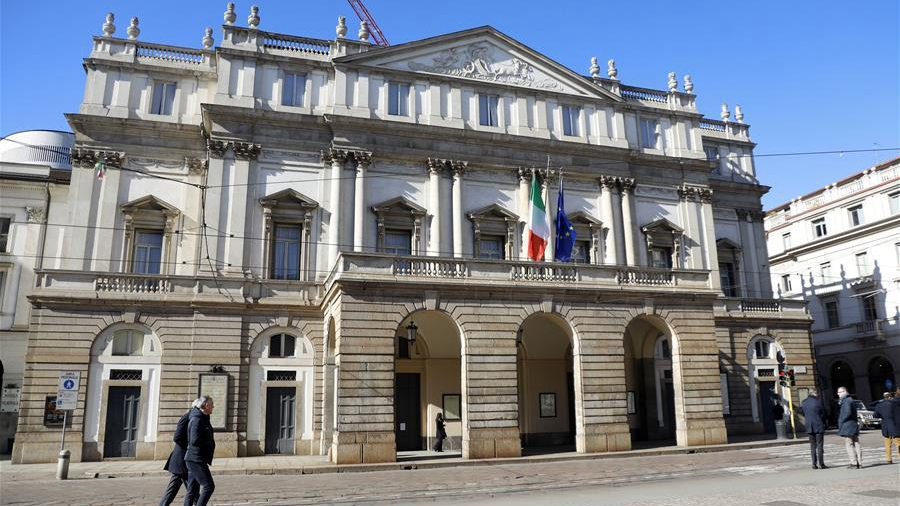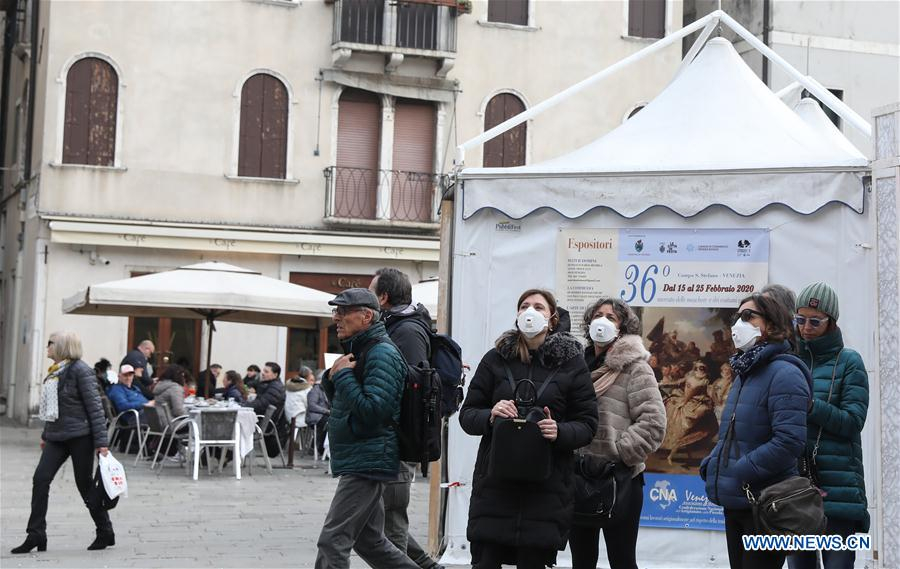
Teatro alla Scala opera house in Milan, Italy, February 28, 2020. /Xinhua
Teatro alla Scala opera house in Milan, Italy, February 28, 2020. /Xinhua
Editor's note: Alex Chan is a doctoral researcher in diplomacy at Peking University. He graduated in China studies from Peking University and international relations from the London School of Economics. The article reflects the author's opinions, and not necessarily the views of CGTN.
An entire nation of more than 60 million people woke up on March 10 under quarantine. This is the most drastic move made by Italy since the outbreak of COVID-19 and it is a much needed measure that reflects the escalating numbers of COVID-19 infections and fatalities across the country.
According to data from the Italian Civil Protection Agency, as of March 9 the total number of positive cases in Italy rose to 9,172, of which 1,797 were added in just one single day. The number of COVID-19 deaths rose from 366 to 473, making Italy the hardest-hit country after China.
When the northern areas of Lombardy and the 14 provinces were locked down on March 8, around 25,000 people rushed to take the southbound buses and trains in the hope to return to their hometowns in southern Italy. This enhanced the possibility of wider spread in the peninsula and has not helped the containment of the virus.
Furthermore, chaos also occurred in Italian prisons as many detainees have rioted against the government for the suspended family visits. This resulted in the escape and death of many of the inmates.
The Italian government soon realized that measures must be tougher and that people's habits need to be changed in order contain the further spread. The new measures require all citizens to stay home and to not leave their residences, unless they demonstrate a real need to travel for work, for medical reasons and other emergencies until April 3.
Moreover, all schools and universities remain closed and any outdoor public gatherings will be prohibited.
As the number of cases has kept rising considerably between the end of February and the beginning of March, many Italian officials were highly optimistic and positive. They encouraged people to not lose their habits and to do their social gatherings as usual without being affected by this fear.
Today, many politicians, such as Nicola Zingaretti, president of the central region of Lazio and party leader of Italy's Democratic Party, and Alberto Cirio, president of the northwestern region of Piedmont, have tested positive for COVID-19.
Concerted national efforts were needed right in the beginning of the outbreak and the central government could have imposed and enforced more stringent rules two months ago.

Tourists wearing masks are seen in Venice, Italy, February 23, 2020. /Xinhua
Tourists wearing masks are seen in Venice, Italy, February 23, 2020. /Xinhua
Italian society and media have looked at China to find the response for the current national emergency. On March 9, the Italian leading newspaper Corriere della Sera argued that the Wuhan model worked well and significantly reduced the number of new confirmed cases.
The article, signed by the Italian journalist Guido Santevecchi, also noted that China's measures treated people equally with no discrimination and that the Chinese people did not complain for their reduced mobility, but preserved rationality and calmness and respected the local governments guidelines.
This is why today new confirmed cases in China are much lower than other countries.
A paper titled "A simple model to assess Wuhan lock-down effect and region efforts during COVID-19 epidemic in China Mainland" and published on the Bulletin of the World Health Organization recently, maintained that the Wuhan lockdown, combined with nationwide traffic restrictions had a "determining effect on the ongoing spread of COVID-19."
Through statistics and scientific analysis, the authors deem it necessary for the international community to learn from the lessons of Wuhan as well as other successful Chinese experiences.
Dr. Bruce Aylward, team lead of the WHO-China joint mission on COVID-19, also asserted that China's model can be replicated but it requires a lot of speed, imagination, economic support and political courage. He also said that the international community must be grateful for Wuhan people's sacrifices and the crucial role they played.
China's ongoing efforts were crucial in containing COVID-19 and send encouraging messages to the world. Now it is time for Italy to take similar efforts. Italy under quarantine must learn from China.
(If you want to contribute and have specific expertise, please contact us at opinions@cgtn.com.)